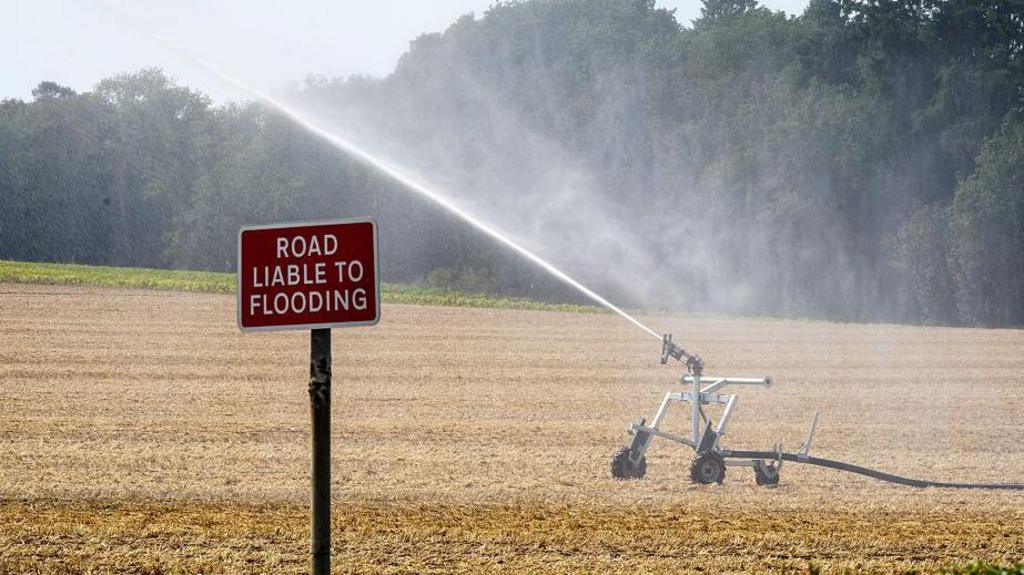The United Kingdom must prepare for the amplified impacts of climate change, including extreme weather events, associated with a global temperature increase of at least 2 degrees Celsius by 2050, according to independent climate advisors.
In a letter addressed to the government, the Climate Change Committee (CCC) stated that the nation is “not yet adapted” to the intensifying weather extremes already occurring at current warming levels, “let alone” the projected consequences.
The committee indicated its intention to advise the UK to prepare for climate change exceeding the long-term temperature target outlined in the Paris Agreement.
This letter coincides with the World Meteorological Organization’s (WMO) confirmation of a record rise in atmospheric carbon dioxide (CO2) concentrations in 2024.
CO2, the primary driver of human-induced climate change, is released through the combustion of fossil fuels and other activities.
The CCC’s communication follows a request for advice on establishing adaptation scenarios based on “minimum climate scenarios.”
The committee urged the government to establish a framework of “clear long-term objectives” to prevent further temperature increases, with new targets set every five years and government departments held “clearly accountable” for achieving these goals.
The CCC anticipates providing further details on potential “trade-offs” in May 2026, upon the release of a comprehensive report outlining strategies for the UK to adapt to climate change.
The committee’s previous report, published in April of this year, indicated that preparations in the UK for rising temperatures were proceeding “either too slow, has stalled, or [are] heading in the wrong direction”.
The report cautioned that this lack of progress could expose the UK to significant economic and health impacts in the coming decades, affecting sectors from healthcare and social services to food and water security.
It further noted that the impacts of rising temperatures are already evident, for example, in educational settings.
The CCC referenced preliminary data from the Department for Education, which indicated an average of 1.7 days of “extreme overheating” and associated learning disruptions due to heat.
The Paris Agreement, signed in 2015, saw nearly 200 nations commit to limiting global temperature increases to no more than 1.5 degrees Celsius above pre-industrial levels, and to remain “well below” 2 degrees Celsius.
As highlighted in the CCC’s letter, a global warming level of 2 degrees Celsius would significantly impact the UK’s weather patterns, leading to more frequent and widespread extreme events.
The UK could anticipate increased heatwaves, droughts, and flooding, with the wildfire season potentially extending into the autumn months.
Baroness Brown, chairwoman of the adaptation committee for the CCC, stated: “People in the UK are already experiencing the impacts of a changing climate, and we owe it to them to prepare, and also to help them prepare.”
“Adaptation in the UK is not keeping up with the increase in climate risk. The impacts on the UK are getting worse and [the government] needs more ambition,” she told the BBC’s Today program.
The chairwoman also criticized Conservative leader Kemi Badenoch, who has pledged to repeal the UK’s landmark climate change legislation and replace it with a strategy focused on “cheap and reliable” energy.
Baroness Brown described the pledge as “disappointing,” expressing hope that the Conservative leader would “reflect on the fact that the act covers both adaption and mitigation.”
The UK is already experiencing altered weather patterns due to climate change, with four official heatwaves recorded in 2025 during what the Met Office has confirmed as the hottest summer on record.
Met Office climate scientists have determined that a summer as hot as or hotter than 2025 is now 70 times more likely than it would have been in a “natural” climate, absent human-caused greenhouse gas emissions.
The WMO stated that the increase in atmospheric CO2 between 2023 and 2024 was the largest since modern measurements began in the late 1950s.
This aligns with findings initially reported by the Met Office in January.
“The heat trapped by CO2 and other greenhouse gases is turbo-charging our climate and leading to more extreme weather,” said WMO Deputy Secretary-General Ko Barrett.
“Reducing emissions is therefore essential not just for our climate but also for our economic security and community well-being,” she added.
The UN’s Intergovernmental Panel on Climate Change has previously indicated that CO2 levels are at their highest in at least two million years, based on long-term records such as marine sediments and ice cores.
Sign up for our Future Earth newsletter to keep up with the latest climate and environment stories with the BBC’s Justin Rowlatt. Outside the UK? Sign up to our international newsletter here.
Warm and dry conditions in the spring and summer point to a bumper crop, say cider producers.
The producer says the heat prompted it to harvest many apples 10 days ahead of schedule.
Some five million children – over half of those in England – are living in homes at risk of overheating.
Cameron Farquharson is a tenant farmer running a small farm of sheep and Highland cattle.
Leaves have been falling and fruits ripening weeks earlier than usual due to the hot, dry weather.

